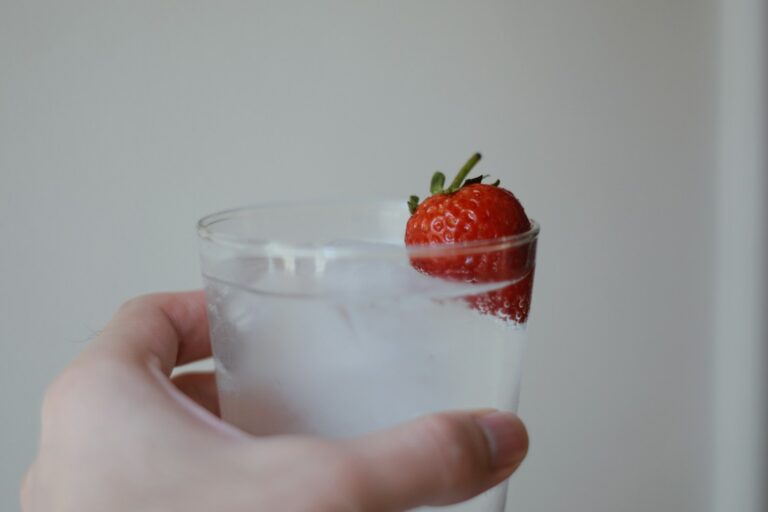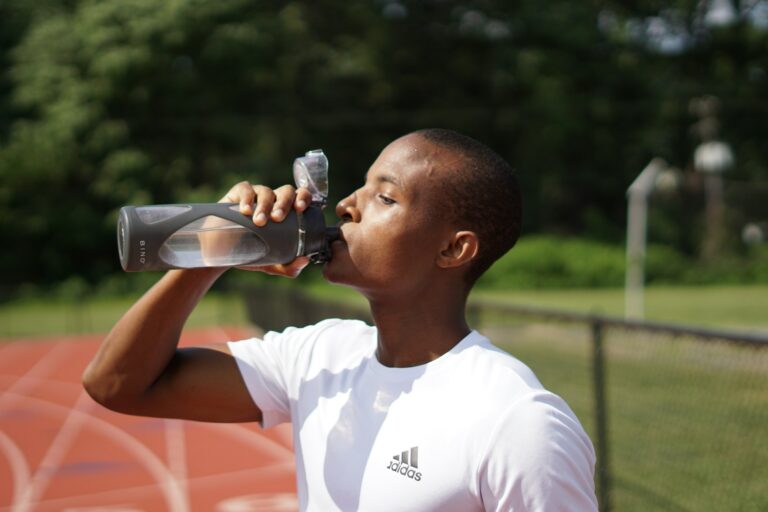We all know hydration is important, but not everything you hear about drinking water is true. In fact, some common hydration myths can lead you to drink too little, too much, or choose the wrong beverages altogether. When it comes to heart health, these mistakes can have real consequences.
Your heart relies on proper hydration to maintain blood volume, regulate blood pressure, and deliver oxygen efficiently. Let’s bust some of the most common hydration myths — and replace them with heart-healthy facts. For more hydration resources, see our Hydration & Heart Health hub.
Myth #1: “You Only Need Water When You’re Thirsty”
Thirst is actually a late-stage sign of dehydration. By the time you feel thirsty, your body may already be experiencing lower blood volume, which forces your heart to work harder. Aim to drink small amounts consistently throughout the day — not just when you feel parched.
Learn more about recognizing dehydration signs in our post 10 Signs You’re Not Drinking Enough Water.
Myth #2: “Eight Glasses a Day is Enough for Everyone”
The “8×8” rule (eight 8-ounce glasses a day) is a general guideline, but your hydration needs depend on body size, activity level, climate, and overall health. People with heart conditions may need tailored advice from their healthcare provider.
Myth #3: “Sports Drinks Are the Best for Hydration”
Sports drinks are designed for athletes in intense training. For the average person, they often add unnecessary sugar and sodium, which can harm heart health. A simple homemade electrolyte drink or water with a pinch of salt is often a better choice.
See sugar-free alternatives in our How to Stay Hydrated Without Overloading on Sugar article.
Myth #4: “Coffee and Tea Don’t Count Toward Hydration”
While caffeine is a mild diuretic, moderate consumption of coffee and tea still contributes to your daily fluid intake. The key is balance — opt for unsweetened versions to avoid added sugar and creamers high in saturated fat.
Myth #5: “Clear Urine Means You’re Perfectly Hydrated”
Completely clear urine can actually indicate overhydration, which may dilute essential electrolytes and strain the heart. Pale yellow is generally the healthiest sign of hydration balance.
Myth #6: “More Water is Always Better”
Overhydration (water intoxication) is rare but possible — and dangerous. It can cause an imbalance of sodium in the blood (hyponatremia), leading to heart rhythm disturbances and even life-threatening complications.
Myth #7: “Only Drinks Can Hydrate You”
Fruits and vegetables — like cucumbers, watermelon, and oranges — can significantly contribute to your daily hydration. They also provide vitamins and minerals that support cardiovascular function.
Check our Healthy Eating category for heart-friendly recipes packed with hydration-boosting foods.
Myth #8: “Bottled Water is Always Better Than Tap”
In many areas, tap water meets or exceeds safety standards and contains beneficial minerals. The environmental cost of bottled water is high, and some brands may even be just filtered tap water. Use a quality home filter if needed.
Myth #9: “You Can’t Drink Too Much During Exercise”
Drinking excessive water during exercise without replacing electrolytes can cause dangerous imbalances. Sip steadily and use electrolyte-enhanced water if you’re sweating heavily over long periods.
Myth #10: “Hydration Doesn’t Affect Heart Health”
This is the most damaging myth of all. Proper hydration keeps blood volume stable, helps regulate blood pressure, and ensures the heart doesn’t overwork. Chronic dehydration can increase the risk of cardiovascular issues.
Heart-Healthy Hydration Tips
- Drink water regularly throughout the day — don’t wait for thirst.
- Use natural flavors to make plain water more appealing.
- Balance water intake with electrolyte-rich foods if you’re active.
- Be mindful of sugar content in drinks marketed as “healthy.”
- Adjust your intake based on your climate, activity level, and health status.
Final Thoughts
Hydration myths can do more harm than good, especially for your heart. By understanding the truth, you can stay properly hydrated, protect your cardiovascular system, and feel your best every day. Remember, hydration is personal — listen to your body and make adjustments as needed.
For more heart-smart hydration advice, browse our Hydration & Heart Health articles and explore our All Products for hydration-friendly tools.





